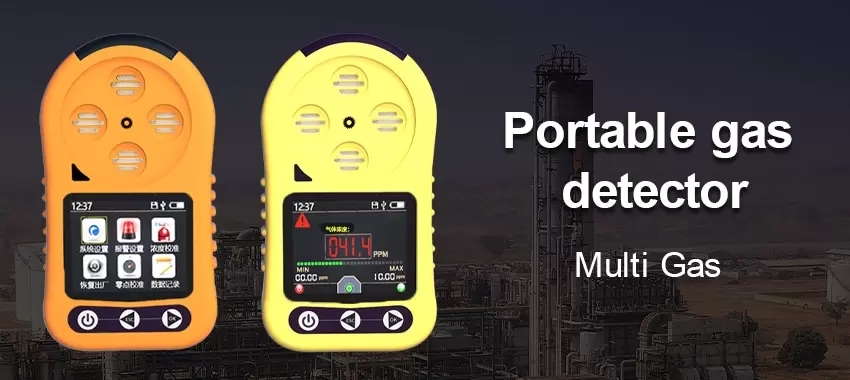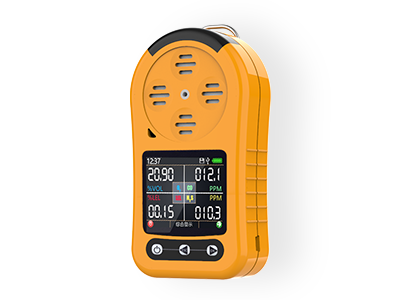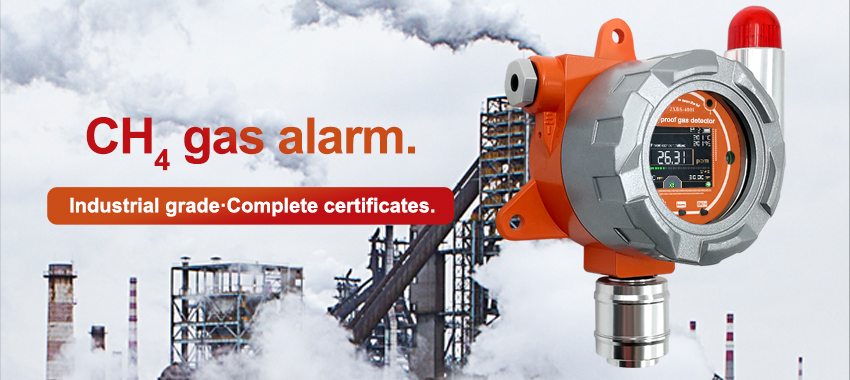Knowing how to use a natural gas leak detector and how to fix a simple gas leak can help prevent the dangers posed by the gas. Learn about natural gas and its dangers, the signs of a gas leak, and how to prevent and fix leaks.

Natural gas is a convenient source of energy that over 50 percent of homes in the United States rely on to dry clothing, cook food, heat water, and heat their homes. It is usually safe, but under certain circumstances, such as improperly installed or poorly maintained gas lines, gas leaks can turn into major problems for your health and your home.
What is a Natural Gas Leak?
Natural gas is a fossil energy source that comes from under the Earth's surface. It is made up of methane, as well as non-hydrocarbon gases and other natural gas liquids.
A natural gas leak occurs when a gas line or gas appliance springs a leak. The natural gas in the pipeline seeps out and leaks into open areas. Natural gas leaks are more likely to happen with old gas lines that are exposed begin to corrode. The outer material of the pipe wears away over time until small hairline fractures occur.
The Dangers of a Gas Leak
The methane present in natural gas can cause a host of problems. And although natural gas is non-toxic, in certain conditions, natural gas leaks can result in:
- Dizziness or asphyxiation when high concentrations of natural gases gather in confined spaces.
- Flammable mixtures that can explode when exposed to open air.
- Dead vegetation, trees, and houseplants.
- Higher gas bills.
- Costly property damages.
In other words, you need to know the basics of checking for gas leaks in your home.
How to Detect a Gas Leak

Here are five ways you can check for gas leaks in your house:
1. Check for a Sulfur or Rotten Egg Smell
Because most gases are colorless and odorless, natural gas companies usually put an additive called mercaptan into natural gas to give it a distinct smell. The odor often smells like sulfur or rotten eggs that can easily be detected in your home. If you smell this particular odor, it may be best to investigate the source of the leak or to contact a plumber.
2. Listen for a Whistling or Hissing Noise
If you're hearing a hissing or whistling noise sound near your gas line, then you might be experiencing a substantial gas leak. Pay attention to where the noise is coming from, because if you hear the hissing sound is occurring near your A/C, then it could be your refrigerant line, a leaking valve, or a damaged compressor.
3. Check the Stove or Range Top
Gas stoves typically give off a blue flame when you first turn on the burner. If your stove burner gives off orange or red flames, it means there may be gas in the air that's taking away oxygen.
4. Use a Natural Gas Leak Detector
The most efficient way to find out if you have a gas leak is to use a gas leak detector. There are several natural gas leak detector options for you to choose from. Check out our recommendations in the last section of this post.
5. Conduct a Soapy Water Test
Mix a teaspoon of soap into a cup of water to get a concentrated solution. Douse the area you suspect is leaking with the soap and water solution, and look for bubbles to show up. This indicates that there is gas escaping from that area.
The Best Gas Leak Detectors and Sensors
When we shop around, it's best to buy a device that can identify multiple gases. Detector and sensor manufacturers can sniff which one for their products, so if it's not listed on the packaging, it won't feel it. Here are the most common gas types that the best gas leak detectors will warn you about.
- Combustible gases. Natural gas mostly comprises methane and propane. Combustible detectors use catalytic and infrared sensors, and because propane gas is heavier than air, you'll want to place detectors low to the ground.
- Toxic gases. Carbon monoxide from a leaking appliance or a vehicle running in an attached garage is harmful and even fatal. These gases are lighter than air, so place detectors high in the room.
- Radon: A high concentration of radon in your basement or crawl space isn't going to cause your home to explode like propane or natural gas can, however, it is radioactive. This makes it the second leading cause of lung cancer, so you definitely don't want it in the air.
Review the following gas leak detector and sensor choices that you can use in your home to help you and your family stay safe.
 : +86 155 8830 2704
: +86 155 8830 2704 : jxdziot@gmail.com
: jxdziot@gmail.com
